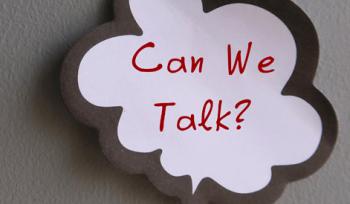Words Do Matter in Negotiations
Negotiations are challenging. Between assessing the negotiation landscape, understanding how to reach an agreement, and learning how to build trust, it can be difficult to navigate a successful negotiation. On top of all these challenges, the language used during conflict-laden negotiations can trigger an emotional response and impact whether you reach agreement. If you understand how words and phrases can affect negotiations, you will be prepared to navigate future conflicts.
Words that typically elicit strong emotions include language that negatively labels someone and tells them what they should do. The emotional response can vary from person to person; however, the most common reaction is anger and frustration. While using any emotional trigger language can lead to anger and frustration, showing someone in a negative light is more likely to lead to anger and telling someone what to do is more likely to result in frustration.
Language that Labels the Other Person Negatively
Words
- Unfair
- Silly
- Liar
- Stupid
Phrases
- You are lying
- Don’t be stupid
- I feel like you are…
- You are not looking at my side.
- I don’t like your style
- You can do that but I don’t think you will
- What have you actually done for the project?
- You are looking for a scapegoat
- You are unwilling…
- Are you holding out on me?
- You are being unfair
- I don’t think I can trust you
- It was your fault
Language that Tell the Other Person What to Do
Words
- Can’t
- Must
- Sorry (as in no way)
- Need to
- Look!
- Well
- Have to
- No
- Never
- Should Ought to
- You
Phrases
- No way
- You need to…
- I think…
- You did…
- I’m telling you
- Your options are…
- You have what I need, this is how it is going to be …
- No, that’s impossible
- I made a lot of concessions and you have just made a little
- You should…
- I think you need to …
- I think I should get more
- I know you can
- You’re not looking at my position
- Please try to understand…
- It is better if you…
- I really don’t think this is a good idea
- I can’t help you
Emotions Impact the Outcome
The use of emotional trigger words during conflict can lead to a different perception of the negotiation outcome. Specifically, using language that negatively labels someone or tells them what to do impacts the perception that the conflict will be successfully resolved.
However, individuals observing negotiations where people use emotional trigger words are more likely to believe the conflict will be successfully resolved than those watching negotiations without trigger words. Strong language can be used to convey someone's preferences and potentially facilitate a resolution.
While using strong language can help lead to a successful resolution of conflict, it can also impact people's perception of you. Individuals who use language that triggers emotions are seen as less fair than those who did not use the same vocabulary. Additionally, people who avoid using emotional trigger words and phrases are viewed as more likely to display problem solving and creative behavior.
Equipped with the knowledge that some words can either hurt or help your negotiations, you can have confidence in your understanding of language's impact on your ability to reach an agreement.
Explore more insights in the research:
Holly A. Schroth, Jon Bain‐Chekal, David F. Caldwell. Sticks and Stones May Break Bones and Words CAN Hurt Me: Words and Phrases That Trigger Emotions in Negotiations and Their Effects Emotional Triggers in Negotiations. The International Journal of Conflict Management. 2005
Dive Deeper
Take a deep-dive into this topic and gain expert, working knowledge by joining us for the program that inspired it!
Negotiation and Influence Program
Develop negotiation skills to manage conflict, build trust, and reach an agreement in all of your negotiations.
Learn moreHigh-Impact Leadership Program
Develop your authentic voice and turn your communication weaknesses into strengths through world-class theater techniques and storytelling.
Learn moreThe Berkeley Executive Leadership Program
Advance your leadership qualities, build skills to strategically address business challenges head-on, and apply strategic decision-making.
Learn more


